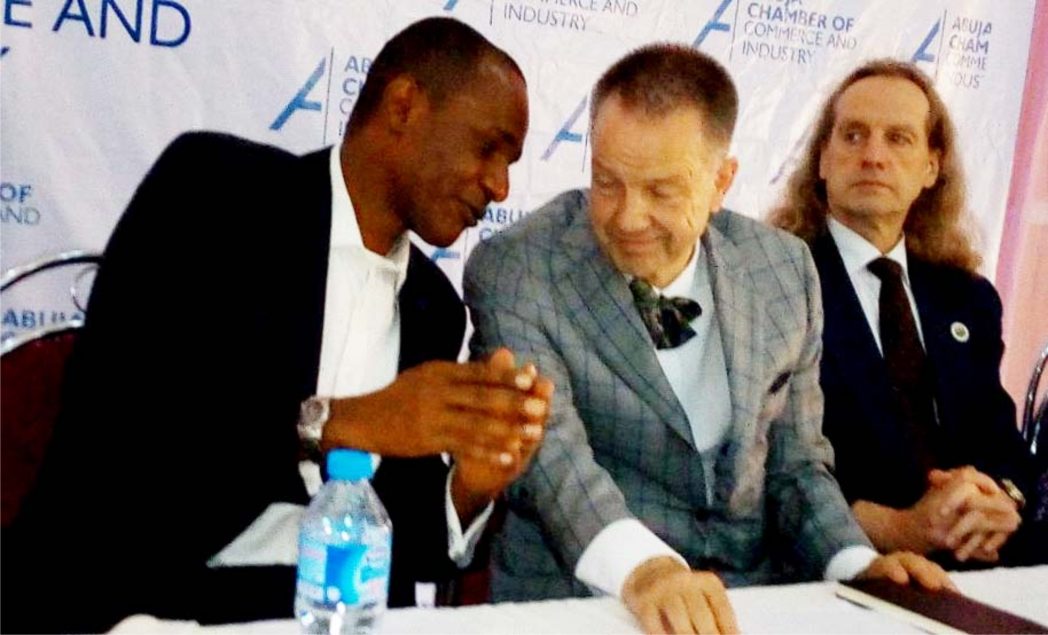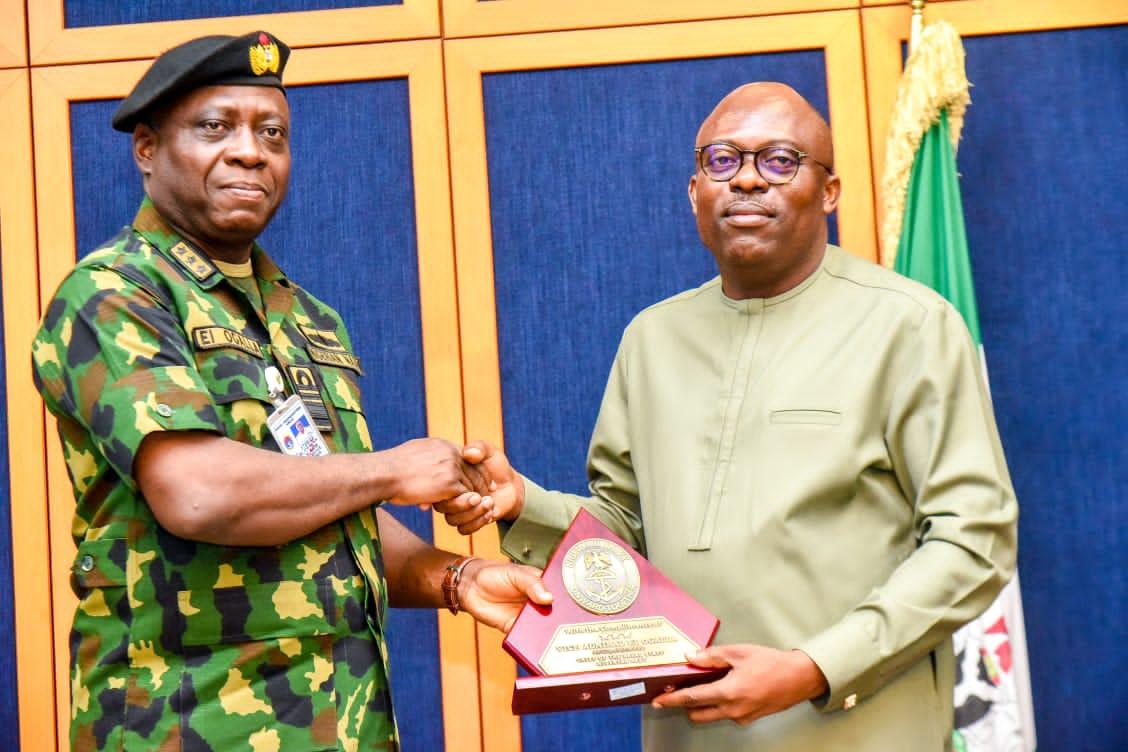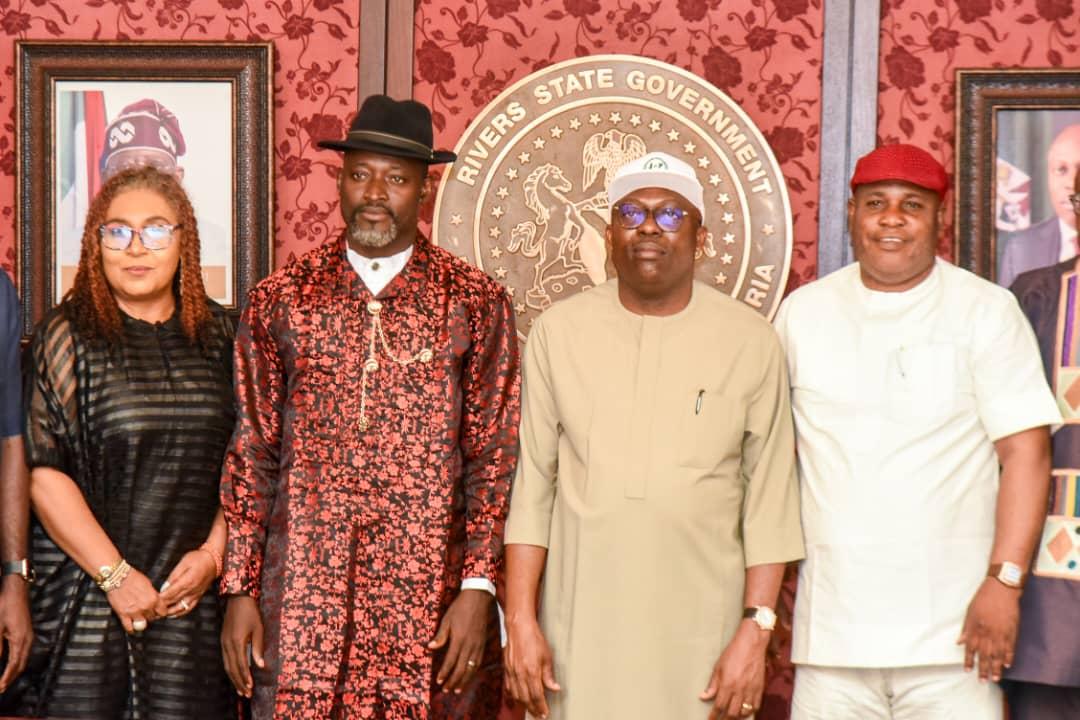Featured
Genocide: Umuechem Seeks Compensation After 27yrs -As Organisation Drags SPDC, Others To Int’l Court

Worried by the lack of commitment by the Nigeria Police Force and the Shell Petroleum Development Company of Nigeria (SPDC) to pay compensation after 27 years of genocide, the people of Umuechem in Etche Local Government Area of Rivers State have called for immediate compensation for the killings of over 200 indigenes, including the paramount ruler of the community in 1990 by men of the Nigeria Mobile Police.
The Paramount Ruler of Umuechem Community, Eze Sampson Imo made the call during the 27th anniversary of the genocide by the people of the area held at the community’s Town Square, last Wednesday.
Sampson stated that the people were killed by the mobile police officers who came to the community on the invitation of SPDC following agitations by the people for their due rights.
According to him, the Umuechem people were only making some demands to Shell on how to improve their living conditions, adding that it was in the wake of the demand that Shell invited mobile policemen, who came and killed over 200 people in the community.
He averred that properties worth millions of Naira were lost during the massacre, adding that since then, nothing has been done in the community to assuage the sufferings of the people.
“The state government set up an investigative panel, which recommended that SPDC pay compensation to Umuechem community for the damages and loss of lives. Since then, nothing has been done to ameliorate our sufferings”, he added.
The traditional ruler used the occasion to call on the state and the Federal Government as well as the international community to prevail on the matter so as to fast- track the compensation due the community.
Also speaking, Project Officer, Social Development Integrated Centre, Mr. Prince Ekpere disclosed that the organization will soon drag SPDC to International Criminal Court at The Hague, Switzerland for prosecution.
According to him, the organisation had done independent investigation on the matter and discovered that more than 200 people were killed during the crisis, adding that it was disheartening that after 27 years, none of the actors has paid adequate compensation to the community.
He promised that the group would not abandon the struggle until the due compensation is paid to the community.
Featured
Be Firm In Fight Against Oil Theft, Fubara Tells CNS …As Navy Moves Training Hqtrs To Rivers …Seizes 14 Vessels In Three Months

Rivers State Governor, Sir Siminalayi Fubara, has encouraged the Nigerian Navy to be firm in the fight against all forms of economic sabotage, particularly crude oil theft, in the nation’s waterways.
The Governor noted with delight the positive results already recorded by the Navy in the State due largely to the tremendous support it has received from his administration.
Governor Fubara spoke when he hosted on courtesy visit, the Chief of Naval Staff, Vice Admiral Emmanuel Ikechukwu Ogalla with his delegation of top officers of Navy High Command at Government House in Port Harcourt,yesterday.
The Rivers State Governor stated that Nigeria was facing myriad of crises, including economic challenges, rising insecurity and criminal activities that threaten the national economy, which should not be overlooked.
He said, “We are working together, we will give you all the support to make sure that you deliver on your mandate.
”And what is the mandate? You were appointed at a time when our country is facing a lot of crises, and your duty, among others, include to reduce, if it cannot be eliminated completely, the criminalities perpetrated on the waterways; oil theft and others.
”And I am happy that they are positive and commendable records of achievement so far, in the course of your tenure.”
Governor Fubara said the good news of reduced level of oil theft in Rivers State is evidence of the many positive things that are happening in the State beyond the much hyped negativity, and assured that such positive achievements will be sustained.
The State Chief Executive insisted: “The success of the Nigerian Navy in our State, in the areas of oil theft, is because the State Government has given you all the necessary support.
”We have collaborated with the command here. We supported them morally, and with all the necessary logistics.
”We have also maintained good relationship with the communities to make sure that whatever it is that is required for these operations to be successful were granted. I am happy to be associated with these very laudable achievements.”
Governor Fubara said: “So, I have to say that I am happy that the Chief of Naval Staff, today, is commending the success of the exercise. He is commending the doggedness of the men in fighting oil theft, not just in the Niger Delta, but particularly in our State.
”I want to assure you that we will continue to give them the support, and discourage any act that would be a sabotage to the economy of our State.”
Governor Fubara said that Rivers State was not named in error: there are several water channels that can boost the operations of the Navy. This is why we are requesting that the Nigerian Navy move all its bases to the State.
”It was not a mistake they called it Rivers State. It is surrounded with all forms of rivers. You want the Atlantic region, you can get it here. You want those small creeks, you can also get it here. Maybe, if you want an Island, you can also find it here.
”So, it is proper if we work with you and you have all that is required within this geographic region, to have all your bases relocated to Rivers State,” he said.
He further said: “We must continue to give you the necessary support to make sure that you succeed. I am happy to also say that, as the Governor of the State by the special grace of God, we are still here, not minding the dramas here and there. We will not let our people down in ensuring that we protect their interest.
”We will support the genuine course of governance; the protection of lives and provision of basic amenities. And these can only be achieved when there is a peaceful environment.
”And the peaceful environment can only come when there is a collaboration with security agencies to prevent crimes, and protect lives and property of residents.”
In his address, the Chief of Naval Staff, Vice Admiral Emmanuel Ikechukwu Ogalla, reiterated that the Nigerian Navy and Rivers State are like conjoined twins who cannot do without each other.
This is because, he said, they needed collaboration on various aspects of their activities ranging from training, operations, logistics, adding that Rivers State is key to their performance.
”My purpose of coming here today are three folds. The first is to inform His Excellency that on Saturday, we are graduating a set of former civilians who have been trained at our Basic Training School, Onne, and are graduating to join the ranks of the Nigerian Navy as ratings in order to beef up our strength.
”The second reason is to first appreciate the Governor and the entire Rivers State Government for the schools they donated to us: the Ambassador Nne Krukrubo Model Secondary School at Eleme in Eleme Local Government Area, and the Model Secondary School, Egbelu in Oyigbo Local Government Area.”
Vice Admiral Ogalla stated further: “We also want to use this opportunity to inform His Excellency that following that donation, and based on our strategic plan of moving our facilities to areas where we have enough space to be able to carryout out duties, we have renovated the school at Eleme.
”We are happy to report, today, that the erstwhile location of Headquarters of Naval Training Command, Lagos, is moving to that particular school location in Eleme, tomorrow.’
Speaking on the operational successes recorded thus far, he said that propelled by the charge given to them by President Bola Tinubu, the Nigerian Navy, under his watch, has impounded 14 vessels caught to be conveying stolen crude oil and several other individuals arrested, adding that investigations into their culpability were ongoing.
”I am here today to report Sir, that, with the “Operation Delta Sanity”, launched in January, 2024, we have been very successful, and within the period, we have recorded tremendous successes and achievements.
”Over 14 large crude carrying vessels have been arrested within that period. Most of them are at various levels of investigation. We have also arrested several barges and other companies and organizations that are involved in oil theft.
”As a result of the operations, we are happy to report that there has been tremendous improvement in terms of security in the maritime environment,” Ogalla added.
Featured
118 Inmates Escape As Rainstorm Destroys Niger Prison

A heavy downpour has wreaked havoc on the Medium Security Custodial Centre in Suleja, Niger State, resulting in extensive damage to the facility and facilitating the escape of 118 inmates.
This was disclosed in a statement signed by the spokesperson, Federal Capital Territory Command of the Nigerian Correctional Service, Adamu Duza, yesterday.
Duza noted that the downpour which occurred on Wednesday night, caused severe damage to the custodial centre’s infrastructure, including a breach in the perimeter fence, which allowed the inmates to flee.
However, 10 fleeing inmates had been recaptured following a swift response by the NCoS in collaboration with other security agencies.
Duazu promised that efforts were ongoing to recapture the remaining fleeing inmates, adding that their database would soon be made known to the public.
Recognising the vulnerability of ageing facilities, many of which were built during the colonial era, Duza acknowledged that the NCoS was committed to modernising its infrastructure.
The statement further noted that the Controller of Corrections, FCT Command, Francis John, assured the public that the situation was under control and urged them to carry on with their daily activities without fear.
The public was encouraged to remain vigilant and report any suspicious activities or sightings of escaped inmates to the nearest security agency.
The statement read in part, “A heavy downpour that lasted for several hours on the night of Wednesday, April 24, 2024, has wreaked havoc on the Medium Security Custodial Centres, Suleja, Niger state, as well as surrounding buildings, destroying parts of the custodial facility, including its perimeter fence, giving way to the escape of 118 inmates of the facility.
“The service has immediately activated its recapturing mechanisms, and in conjunction with sister security agencies, has so far recaptured 10 fleeing inmates and taken them into custody, while we are in hot pursuit to recapture the rest.
“The service is not unmindful of the fact that many of its facilities were built during the colonial era and that they are old and weak. The Service is making frantic efforts to ensure that all aging facilities give way to modern ones.
“The Controller of Corrections, FCT Command, Francis John, wishes to assure the public that the service is on top of the situation and that they should go about their normal businesses without fear or hindrance.”
Meanwhile, the United States has underscored the significant challenge of overcrowding in Nigerian prisons.
The US, according to its ‘2023 Country Reports on Human Rights Practices: Nigeria,’ published on its website on Tuesday, noted that numerous correctional facilities were grappling with a staggering 50 per cent increase in the number of inmates beyond their intended capacity, revealing a systemic issue.
Furthermore, it disclosed that a notable proportion of these prisons, some with histories dating back 70 to 80 years, faced difficulties in meeting even the most fundamental standards of living.
Featured
Rivers’ll Be Known For Peace, Not Crisis -Fubara

Rivers State Governor, Sir Siminalayi Fubara, has said that peace has prevailed because he draws strength from God to resist insults and tantrums thrown at him while frustrating attempts by some disgruntled persons who wanted to plunge the State into unending crisis.
The Governor also said that because he has anchored his Government on promoting peace, the enabling atmosphere has been provided for investments and sustainable development to flourish.
Governor Fubara made the assertion when he received a delegation of members of the Bishops and Gospel Ministers’ Association International Incorporated, Rivers State Chapter, at Government House in Port Harcourt, yesterday.
Represented by the Head of Rivers State Civil Service, Dr George Nwaeke, Governor Fubara said while most people took his meekness for weakness, his stance on peace has unarguably enhanced harmonious atmosphere of concord as residents sleep with their two eyes closed, and investors and shareholders are happy with the returns on investment.
He said, “Before, what they hear of Rivers State is that they are fighting, and some genuine investors will not come. Some people even ask you: How are you coping in Rivers State?
“But now”, he asserted: “The Governor has brought about a lot of changes in the State. One of the most important things is that he has changed the negative narrative. It is no longer Rivers of blood. It is now Rivers of peace.
“We are enjoying our lives here. Why? Because there is a change in the narrative. We have peace. The Governor is, as much as possible, absorbing any level of insult at him only for one purpose: that Rivers State may have peace; that we may grow; that this state will experience genuine development.”
Governor Fubara urged them, as members of the Christian family in the State, to continue to pray for the State and the Government so that the enemies of the State will be put to greater shame.
“This peace is what I want you to embrace. Go and continue to pray, because when the sower of the seed went and sowed, the enemy went in the night and sowed tares inside there. But the Governor is sowing peace.
“When I listened to the leader of the team, His Grace Eddy Ogbonda, he said you came all the way from Eleme Junction, and stopped at major junctions, and you uttered prayers for the peace of Rivers State.”
He also said: “I, hereby want to thank you for identifying with the Governor at a time like this. At a time when it looks as if someone wants the Governor’s peace posture misunderstood as weakness.
“When someone has the strength to fight back, but refuses to fight back. That is a bigger strength; that power of restrain does not just come, it can only come from God.
“You cannot give peace, if you do not have peace within you. The Governor is not interested in any form of trouble or violence. What he is interested in is known, and it is: let there be peace in Rivers State,” he said.
In his address, leader of the group, Archbishop Eddy Ogbonda, said they had observed a week-long intensive prayers that culminated into a peace rally, which brought them to Government House, and assured the Governor that God will continue to give him victory over his adversaries while preserving Rivers State.
“It is Rivers State Prophetic Prayer Convocation and Rally 2024 with the theme: ‘Peace be still’. Of a truth, everyone of us understands that we live in a time when we need peace much more than any other thing.
“Rivers State needs peace. Everyone as individuals need peace. The country needs peace, and the world at large needs peace. So, we are here to do a peace march. We pray that God will command His peace to reign in Rivers State,” he said.
-
Niger Delta4 days ago
Steer Clear Of NNS Delta, Commander Warns Criminals
-
Business4 days ago
‘Gas Infrastructure Devt, Key To Energy Sector Growth’
-

 Foreign1 day ago
Foreign1 day agoMunitions Explosion At Cambodian Army Base Kills 20 soldiers
-

 Oil & Energy1 day ago
Oil & Energy1 day agoNigeria Loses Over 300,000 Barrels Of Crude Oil Daily To Theft – Abbas
-

 Sports4 days ago
Sports4 days agoVan Dijk Questions Liverpool After Title Setback
-
Politics4 days ago
We’ll Not Succumb To Political Banditry-Stakeholders
-
Sports4 days ago
NPFL Title Is Not Our Primary Target – Ilechukwu
-

 News1 day ago
News1 day agoFubara Tasks GPDA On Prosperous, Liveable City

